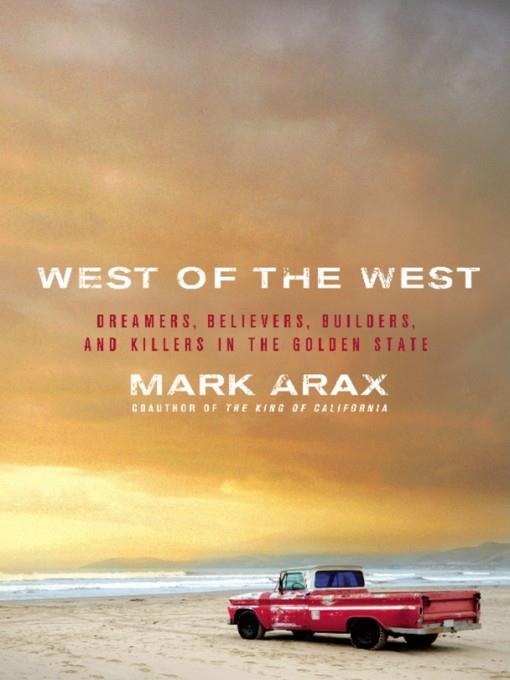
West of the West
Dreamers, Believers, Builders, and Killers in the Golden State
کتاب های مرتبط
- اطلاعات
- نقد و بررسی
- دیدگاه کاربران
نقد و بررسی

Starred review from March 2, 2009
These swift, penetrating essays from former Los Angeles Times
writer Arax (In My Father's Name
) take the measure of contemporary California with a sure and supple hand, consciously but deservedly taking its place alongside Didion's and Saroyan's great social portraits. Expect the unexpected from Arax's reports up and down the state: on the last of the Okies, the latest migrants from Mexico, the tree-sitters of Berkeley, Bay Area conspiracy theorists, an Armenian chicken giant's infamous fall or the mammoth marijuana economy of Humboldt County, among much else. For Arax, a third-generation Californian of Armenian heritage who spent years covering the Central Valley as an investigative reporter, the state's outré reputation and self-representation are a complex dance of myth and memory that includes his own family lore and personal history. It's partly this personal connection, running subtly but consistently throughout, that pushes the collection past mere reportage to a high literary enterprise that beautifully integrates the private and idiosyncratic with the sweep of great historical forces.

February 15, 2009
A lucid, warts-and-all portrait of California by a native son.
Arax (Nonfiction Writing/Claremont McKenna Coll.; The King of California: J.G. Boswell and the Making of a Secret American Empire, 2003, etc.) embarks on a sometimes ominous tour that, he warns, is on a"road trenched by 9/11 and the War on Terror and the anomie of the digital age and the greatest financial collapse since the Great Depression." He finds stories to tell about all those things, beginning with his grandfather, who was"a migrant fruit picker, a farmer, a grocer, a communist, a capitalist, an atheist, a believer—in other words, a consummate Californian." Arax is less admiring of another agriculturist, the classicist and neoconservative Victor Davis Hanson,"a raisin farmer whose family had worked the same piece of dirt since 1872 [and who] had become the hawk of the month for the Bush administration." Another character whom Arax mentions in passing drove his tractor into the Pacific Ocean by way of protesting tax policies—and who had five wives, white, black and Latina. The author explores the Okie migration and its latter-day reflection in the influx of fieldworkers from Mexico, such as one Oaxacan who worked hard for nine years and had accumulated a couple of beat-up vehicles to park"in the dirt path that led from the vineyard to the three-room shack that cost him $400 a month to rent." That shack is within sight of gleaming palaces, to say nothing of INS databases—yet more parts of the California story.
In the library of Californiana, worthy of a place alongside the works of Bill Barich, Carey McWilliams and even Joan Didion.
(COPYRIGHT (2009) KIRKUS REVIEWS/NIELSEN BUSINESS MEDIA, INC. ALL RIGHTS RESERVED.)

























دیدگاه کاربران